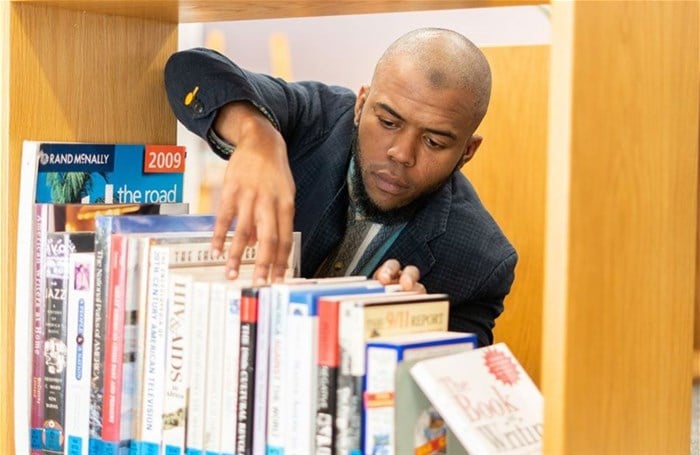
Literacy is a fundamental skill that is critical for personal and societal growth. It enables individuals to access information, participate in democratic processes, and engage with the world around them. While literacy programmes for young children are essential, ensuring that youth between 14-25 years have access to literacy programmess is equally important. This is because the literacy of youth directly impacts their ability to pursue higher education, obtain employment, and make informed decisions.
Addressing childhood literacy rates is therefore one of the most vital contributor to growing adult literacy rates. However, it cannot be the only space where interventions are made. Given the critical skills shortages many sectors face in the country today, more immediate solutions are needed to reach the wider populace.
Young people are at a particularly critical stage in their lives, making important decisions that will impact their future. They are transitioning from childhood to adulthood, and during this time, they require literacy skills to navigate the world around them: they need to read and write well to understand complex texts, complete applications for jobs or universities, and participate in civic processes such as voting or engaging with government officials.
One organisation looking to bridge the gap between childhood and adulthood literacy is the Fundza Literacy Trust. Operating nationally, Fundza aims to improve the literacy levels of South Africa’s youth by encouraging reading for pleasure, writing for meaning, and learning for life.
Mobile phones have become an essential part of our daily lives in today's digital age. They are used for communication, entertainment, and information. However, they can also be used for educational purposes, particularly in improving literacy amongst emerging adults. Fundza's mobisite is an excellent example of how mobile phones can be used to promote literacy and improve the literacy biographies of young people.
Fundza.mobi is an online platform that provides access to a wide range of stories, articles, and other content specifically designed for young adults. The content is curated and written by a team of writers and editors, ensuring it is engaging, relevant, and educational.
“Despite the ubiquity of mobile phones in South Africa and that, for nearly two decades, we’ve used them for educational purposes, many people still think of them as an impediment to literacy,” says Lea-Anne Moses, executive director and trustee at Fundza.
“One of the main reasons why Fundza's mobisite is essential for improving literacy amongst teens and young adults is that it provides access to reading material that is both relevant and relatable. Many young people struggle to engage with traditional forms of literature, such as classic novels or academic texts. Funda.mobi, on the other hand, offers a variety of stories and articles that cover topics such as love, relationships, social issues, and personal growth. This type of content is more likely to capture the attention of young people and encourage them to read more.”
The results of such an approach are compelling too. Last year over 3 million people visited its mobisite, spending just under 30 minutes every day reading. Additionally, the organisation published over 10 000 pieces written by youth.
Harnessing the power of mobile technology, Fundza is focused on rolling out more programmes and campaigns tailored to the mobile experience, such as short, digestible content, but that also tackle issues relevant to South African youth. Literacy is an empowering skill that can help individuals advocate for themselves and their communities. By improving their literacy skills, teens and young adults can become more informed and engaged citizens who can participate fully in democracy. An example of such a campaign is the ‘Dear Mr President’ campaign, where young people aged 13 to 25 were invited to write a letter to President Cyril Ramaphosa.
“In the letters, the young writers were asked to detail what they love about South Africa, the challenges their communities face, and any proposed solutions they might have to those challenges,” Moses explains. “The hope was that the campaign would help give young people the necessary confidence to express themselves, even when facing up to people with immense power.”
“Through this campaign, we found that many young people are still fiercely patriotic, proud of, and enthusiastic about their communities,” she adds. “Interestingly, we also learned that many write to help other young people heal.”
According to Moses, the Fundza team were impressed by the quality of the submissions and choosing the winners was challenging. Those winners and runners-up have been able to put their winnings to good use too. First prize winner Zikhona Sonyoni used her winnings to purchase university essentials. Others have put their winning towards personal development and basics like groceries.
Campaigns like ‘Dr Mr President’ illustrates how important the right approach can be when it comes to promoting literacy.
Literacy goes beyond reading and writing, encompassing a broader range of skills and knowledge. It is the ability to read, write, comprehend, and use information to solve problems, communicate effectively, and make informed decisions. And this is what we strive to do at Fundza. The content on our mobisite and campaigns like Dear Mr President shows how literacy is essential for young people to become active citizens. It enables them to understand civic issues, communicate effectively, analyze, and evaluate information, advocate for change, and participate in democratic processes. With strong literacy skills, young people can become informed and engaged citizens who can positively contribute to their communities and society.
The literacy of young people aged 14-25 years is just as important as that of younger children because it prepares them for adulthood, supports academic and career success, promotes personal development, and addresses social inequality.